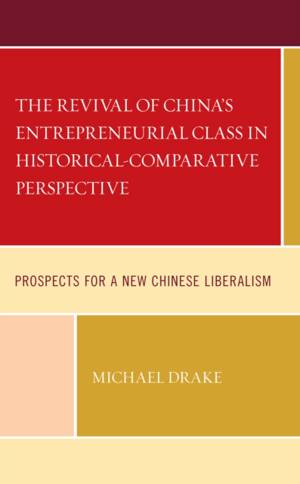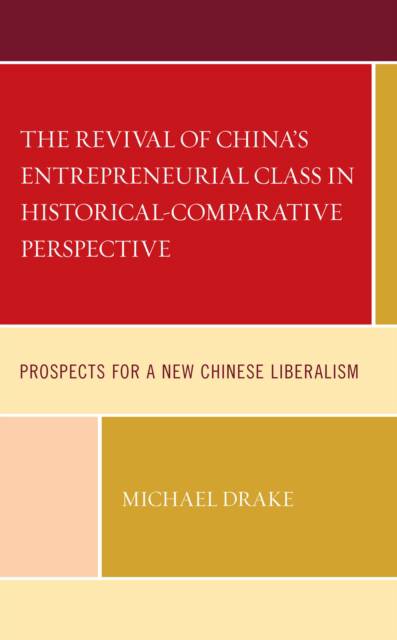
- Afhalen na 1 uur in een winkel met voorraad
- Gratis thuislevering in België vanaf € 30
- Ruim aanbod met 7 miljoen producten
- Afhalen na 1 uur in een winkel met voorraad
- Gratis thuislevering in België vanaf € 30
- Ruim aanbod met 7 miljoen producten
Zoeken
The Revival of China's Entrepreneurial Class in Historical-Comparative Perspective
Prospects for a New Chinese Liberalism
Michael Drake
Hardcover | Engels
€ 169,45
+ 338 punten
Omschrijving
The Revival of China's Entrepreneurial Class in Historical-Comparative Perspective: Prospects for a New Chinese Liberalism examines the evolution of China's entrepreneurial class and prospects for entrepreneurial-driven political institutional change. Michael Drake posits that decades of economic reforms and social transformation have illuminated a fundamental contradiction in contemporary China--a rule-by-law closed political system governing over an emergent entrepreneurial class requiring property protection--that requires resolution. Drake argues that the Chinese Communist Party has one of two choices: crush the entrepreneurial class, and with it, economic growth and the party's legitimacy, or cede to the entrepreneurs' demands for the rule of law and political representation. Drake's research shows the rise of liberal qualities--rationality, autonomy, property-law interests, political awareness, and political agency--among China's emergent entrepreneurial class. As such, Drake argues that this liberal trajectory, in conjunction with a lack of viable alternatives for the party, will translate into a new Chinese liberalism, and ultimately, political change.
Specificaties
Betrokkenen
- Auteur(s):
- Uitgeverij:
Inhoud
- Aantal bladzijden:
- 168
- Taal:
- Engels
Eigenschappen
- Productcode (EAN):
- 9781793619976
- Verschijningsdatum:
- 14/10/2020
- Uitvoering:
- Hardcover
- Formaat:
- Genaaid
- Afmetingen:
- 152 mm x 229 mm
- Gewicht:
- 421 g

Alleen bij Standaard Boekhandel
+ 338 punten op je klantenkaart van Standaard Boekhandel
Beoordelingen
We publiceren alleen reviews die voldoen aan de voorwaarden voor reviews. Bekijk onze voorwaarden voor reviews.











